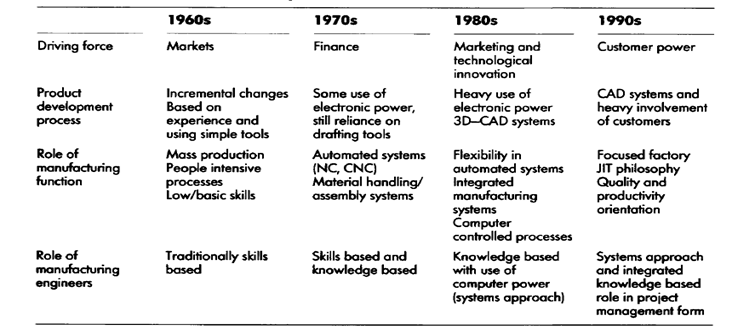SKEDSOFT
THE EVOLUTION OF ENGINEERS FOR TQM
Introduction:
The evolution in the role of engineers was initiated by the developments and changes which took place in manufacturing industry itself. The evolution of the role of the engineer towards an ability to fulfill tasks and contribute to problem solving, eliminating waste, adding value, being innovative and being committed towards organisational objectives can be described by three models.
Manufacturing engineers:
- The evolution in the role of engineers was initiated by the developments and changes which took place in manufacturing industry itself.
- It is the desire to achieve customer satisfaction at all levels which has prompted organisations to look more closely at the benefits of TQM and its importance as a strategy for survival, health and prosperity.
- The evolution of the role of the engineer towards an ability to fulfill tasks and contribute to problem solving, eliminating waste, adding value, being innovative and being committed towards organisational objectives can be described by the following three models:

Model 1: The basic support perspective
1. The organization is usually formal and departmentalized in its structure;
2. The product line is usually well established or complex;
3. A fairly strong ‘we-they’ stigma often exists;
4. This traditional style of management has little commitment towards employee development programmes or seldom encourages participative management to be introduced.
Model 2: The multiple resource perspective
1. Genuine commitment to employee involvement at the plant management level,
2. This culture in turn dictates much of the organisational philosophy;
3. The company is more decentralized, and exhibits a defined planning process under which goals and objectives are regularly established for individuals and the company as a whole;
4. An awareness of employee needs also represents a more progressive style of management and often at the corporate level;
Model 3: The total involvement perspective
1. A family approach to doing business shows that the participative culture is a way of life in the company;
2. The product line is stable and/or simple in design;
3. Corporate support and funding is found at all organisational levels;
4. A participative mentality is a pre-requisite for employment